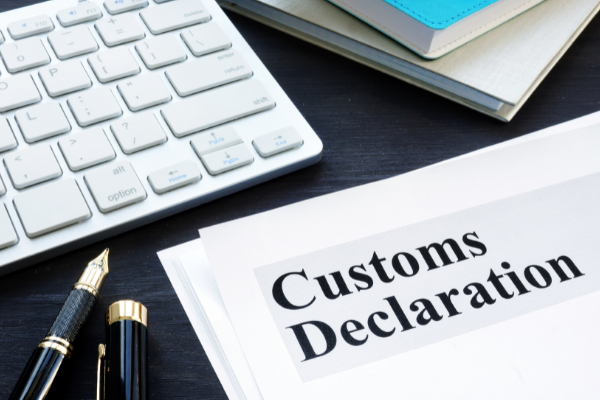BY:
SHARE:

On August 23rd, 2023, HMRC extended the deadline for all export declarations to be moved to the Customs Declaration Service (CDS). The new deadline of 30th March 2024 incorporates a phased approach, which sees high-volume traders being migrated over to CDS for exports by November 30th, 2023.
Is there any difference between declaring goods on CDS compared to CHIEF?
CDS is very data hungry. More information is required on an export declaration and exporters should consider this factor before submitting an export declaration itself, or when sending export clearance instructions to your agent or broker.
CDS exports is built on unique Declaration Categories, which means that you are not able to mix certain customs regimes on the same export declaration, mirroring the similar restriction that applies at imports. For example, you cannot declare a "Permanent Export" together with an "Outward Processing" export on the same declaration. As the exporter, you, or your agent/broker would have to complete two separate customs declarations.
As a business, if you are only involved in exports, it is unlikely that you will have registered for CDS. If this is the case, you will need to register for CDS as soon as possible. Further information on the registration process can be found here:
https://www.gov.uk/guidance/get-access-to-the-customs-declaration-service
As exporters, we have always needed to consider our reason for export and the correct Customs Procedure Code (CPC) for the movement of our goods. With CDS, the permanent export Procedure Code and the Additional Procedure Code are now split into two separate Data Elements (DE). So, for example, the code 3171000 becomes 3171 plus 000. A small change you may think but look at the current code for a permanent export, this changes from 1000001 to 1040 plus 000.
We must consider what the export value of the goods is. If the value of the goods is over £100,000.00, then the value will need to be entered within the declaration in Data Element 4/10 (Invoice Currency) and Data Element 4/11 (Invoice Amount).
Who is the carrier? If you are completing your own customs declarations, you will need to know "who is the carrier of my goods?". This may mean you having to speak to your agent or haulier to obtain this information.
Do you know the route of the shipment?
The routing countries must be completed on the export declaration, although only the dispatch and destination countries are mandatory.
Is it a sale of goods?
Are the goods being exported temporarily for an exhibition, or for loan or hire? Are the goods being shipped for processing or to be repaired? As an exporter, these are considerations you need to make because you will need to state the Nature of Transaction by inputting a code in Data Element 8/5. The Nature of Transaction tells CDS what is happening to the goods.
Permanent exports of free circulation goods can generally be zero-rated for VAT, if the correct evidence is held. With CDS, the claim to VAT zero-rating at export must be stated within the export declaration for compliance purposes. The code VATZ must be included within Data Element 6/17.
Export licences will apply in CDS as they currently apply in CHIEF. Any shipments that are controlled by an export licence or other measure will need to be declared to CDS. Within CHIEF, these licence declarations were input to SAD Box 44. These will now be entered into Data Element 2/3.
Do you need to provide clearance instructions to your agent or broker for CDS?
There is no difference in compliance requirements between CDS and CHIEF. CDS will still require clearance instructions if you do not raise the export declaration yourself. If you are using an agent or a customs broker to complete the export declaration on your behalf, as part of your compliance and due diligence, you must include clear instructions regarding the information that must be input on the export declaration by the agent or broker.
If you currently use the NESWEB (National Export System Web Service) to submit your export declarations through CHIEF, you will still need to subscribe to CDS to use the replacement online declaration service. The upcoming CDS Export Declaration Online Service will be launched by HMRC this winter and will replace the NESWEB service, which is being discontinued.
So, you can see that there is much more to consider with CDS and export declarations. As an exporter, you need to be prepared for the changes. You need to ensure that you are registered for CDS. You need to ensure that you have included the newly required additional data within your clearance instructions or standing operating procedures and ensure that your Shipping Department and all team members are aware of, and prepared for, the new Customs Declaration Service.
If you understand CDS Exports well, why not attend one of our 90-minute CDS Clinics tailored to tackle specific challenges traders may face when using CDS for Exports? View further details below.
OneCall™ Email assistance as and when required; A one-call solution for all your import, export and customs enquiries. Export help. Import help. Customs help.
Stay informed about customs and international trade matters by subscribing to our OneCall™ service. This comprehensive offering includes a dedicated email helpline for support, timely practical updates direct to your inbox (Did You Know?), monthly UK Customs & Trade Briefings and access to an interactive members' area with an exclusive community for our subscribers.
International Trade Updates & Spotlight Newsletter
Subscribe to our free information emails covering international trade topics...











